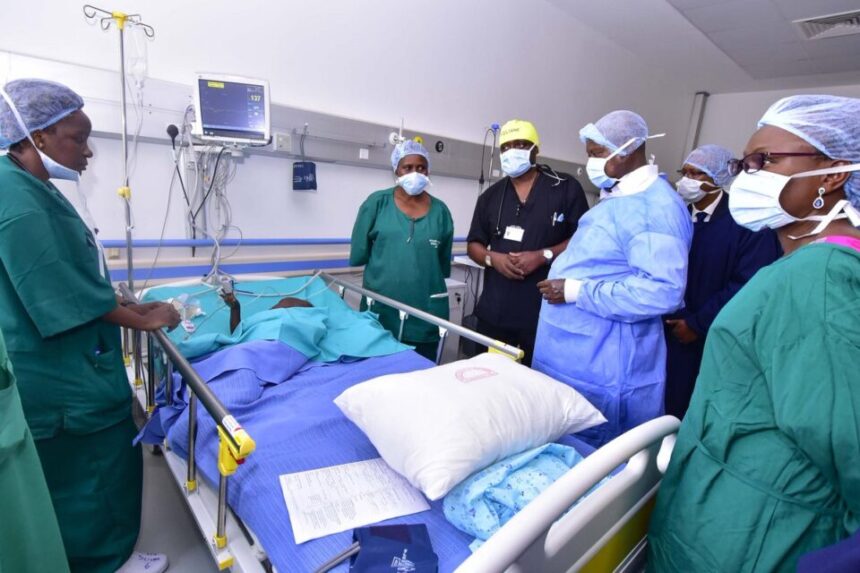Uganda’s healthcare system was in shambles before President Museveni took power in 1986. The country was still reeling from bad past leadership, and the healthcare infrastructure had largely collapsed. Many hospitals and health centres were non-functional, and there was a severe shortage of medical staff and essential medicines. In fact, the healthcare system was characterized by.
Life expectancy was around 43 years, and infant mortality rates were as high as 122 deaths per 1,000 live births. Many Ugandans, especially in rural areas, had limited access to healthcare services due to the lack of functional health facilities and personnel. The country was plagued by high levels of infectious diseases such as malaria, tuberculosis, polio and HIV/AIDS.
However, since President Museveni came to power, the government has made significant investments in the healthcare sector, including the construction of new health facilities, recruitment of healthcare personnel, and implementation of various health programmers.
Uganda currently has several referral hospitals, including Mulago National Referral Hospital, which is the largest hospital in the country. Other notable referral hospitals include, Arua Regional Referral Hospital, Gulu Regional Referral Hospital, and Mbale Regional Referral Hospital. These hospitals provide specialized care and serve as referral centres for district hospitals.
These hospitals focus on specific areas of healthcare, such as the Uganda Cancer Institute and the Uganda Heart Institute.
The referral hospitals in Uganda have played a crucial role in improving the country’s health system. They provide specialized care training and research opportunities, which have contributed to better health outcomes. The Ministry of Health has also implemented various initiatives to improve the quality of care in these hospitals, including the adoption of the 5S philosophy (Sort-Set-Shine-Standardize-Sustain). Overall, the referral hospitals in Uganda have enhanced the country’s health system by providing access to specialized care, improving the quality of services, and promoting healthcare research and training.
President Museveni has been at the forefront of the fight against HIV/AIDS in Uganda, and his efforts have yielded significant results. One of his notable initiatives is the Presidential Fast-Tracking Initiative on the Elimination of HIV/AIDS, which aims to completely eliminate the disease from Uganda by 2030.
Under this initiative, President Museveni has emphasized the importance of prevention, particularly among adolescent girls and young women, who are disproportionately affected by the disease. He has also stressed the need for men to take responsibility for their health and undergo voluntary HIV testing. To achieve his vision of an HIV-free Uganda, President Museveni has set several targets, including reducing new infection especially among adolescent girls and young women, increasing access to antiretroviral therapy (ART) to ensure that all Ugandans living with HIV receive treatment. Mother to child transmission is also being slowly eliminated by providing pregnant women with ART and ensuring that they receive proper care. President Museveni has also recognized the importance of community involvement in the fight against HIV/AIDS. He has encouraged local leaders, religious leaders, and civil society organizations to join the effort and help raise awareness about the disease.
Overall, President Museveni’s commitment to fighting HIV/AIDS in Uganda has been unwavering, and his initiatives have contributed significantly to the country’s progress in reducing the spread of the disease. President Museveni has been a trailblazer in improving Uganda’s healthcare system. One of his notable achievements is strengthening health systems, particularly since the COVID-19 outbreak. He has ensured the installation of key equipment in regional and national referral hospitals, significantly enhancing the country’s healthcare infrastructure. Under President Museveni’s leadership, Uganda has made significant strides in bolstering its healthcare system. He has reaffirmed his support for the Africa Centres for Disease Control and Prevention (Africa CDC) in strengthening health systems across the continent. His dedication to healthcare has been unwavering, and his initiatives have positively impacted the lives of Ugandans and Africans as a whole.






